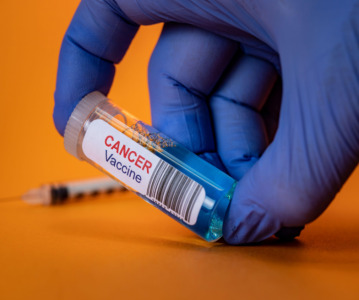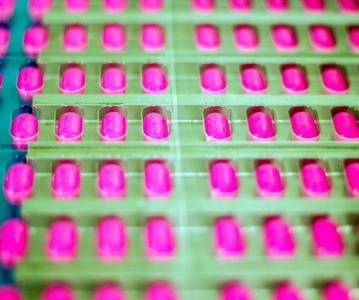Public-private partnership aims to develop sustainable pharmaceuticals

A new research hub aims to develop sustainable alternatives to the finite materials used during pharmaceuticals manufacturing.
The largest ever public-private partnership dedicated to the development of sustainable pharmaceuticals manufacturing in Europe has been launched.
Led by the University of Manchester and GlaxoSmithKline (GSK), the CHEM21 project aims to develop sustainable alternatives to finite materials - such as precious metals - that are used as catalysts in the manufacture of pharmaceuticals.
The £21.2 million biotechnology project involves six pharmaceutical companies, 13 universities and four small-to-medium enterprises from across the continent.
It is hoped that by using biotechnology when manufacturing medicines, it may be possible to limit the reliance on the world's resources.
GSK's John Baldoni said: "Improving the sustainability of our drug manufacturing processes through collaborations such as CHEM21 will not only reduce our industry's carbon footprint, but will provide savings that can be reinvested in the development of new medicines, increase access to medicines through cost reduction and drive innovations that will simplify and transform our manufacturing paradigm."
Professor Nicholas Turner, from the University of Manchester, added that challenging problems are best solved by bringing together combined expertise "to establish a world-class research hub in catalysis and sustainable chemical synthesis".
Related News
-
News Women in Pharma: Hiring Across the Gender Divide
In our monthly series, we interview women from across the pharmaceutical industry and supply chain to discuss the importance of gender diversity in healthcare, the workplace, and beyond. -
Sponsored Content Ashwagandha and Herbal Medicines: Pharma’s Next Big Opportunity
Herbal medicines and nutraceuticals have seen a surge in interest since the onset of the COVID-19 pandemic. Driven by patient interest in prioritising personalised and integrative medicines, the herbal ingredients industry is now faced with concerns pe... -
News Identifying Alzheimer’s Disease biomarker proteins with whole blood tests
A University of Manchester spin-out pharmaceutical company, PharmaKure, has reported successful study results for the quantification of Alzheimer’s Disease biomarker proteins with a whole blood test. -
News Bill & Melinda Gates Foundation to boost mRNA vaccine initiatives in Africa with USD $40m
To address vaccine inequality and accessibility issues, the Bill & Melinda Gates Foundation aims to deliver USD $40m to various biotech companies and vaccine manufacturers in support of mRNA vaccine development. -
News Updated – Changing abortion pill access according to the US FDA and Supreme Court
After the approval of the medical abortion pill, mifepristone, by the US FDA, states across the USA approach the distribution of the pill differently, some ruling against allowing access to the drug. -
News Revolutionising cancer treatment with mRNA-based therapeutics
Global market for mRNA-based oncology therapeutics expected to reach USD $2 billion by 2029, with promising results for the combination of mRNA candidates with immune checkpoint inhibitors to treat solid tumours. -
News Breaking Barriers: Innovations in Oral Solid Dose Form Bioavailability
The effectiveness of a medication often hinges on its bioavailability – the rate and extent at which the active ingredient is absorbed into the bloodstream. When it comes to oral solid dose forms, such as tablets and capsules, the challenge lies ... -
News Choosing the Right CDMO Partner: A Comprehensive Guide
Finding the right partner for the development and manufacturing of your pharmaceutical or biopharmaceutical products is paramount. This is where Contract Development and Manufacturing Organizations (CDMOs) step in, offering their expertise and infrastr...
Position your company at the heart of the global Pharma industry with a CPHI Online membership
-
Your products and solutions visible to thousands of visitors within the largest Pharma marketplace
-
Generate high-quality, engaged leads for your business, all year round
-
Promote your business as the industry’s thought-leader by hosting your reports, brochures and videos within your profile
-
Your company’s profile boosted at all participating CPHI events
-
An easy-to-use platform with a detailed dashboard showing your leads and performance

.png)





